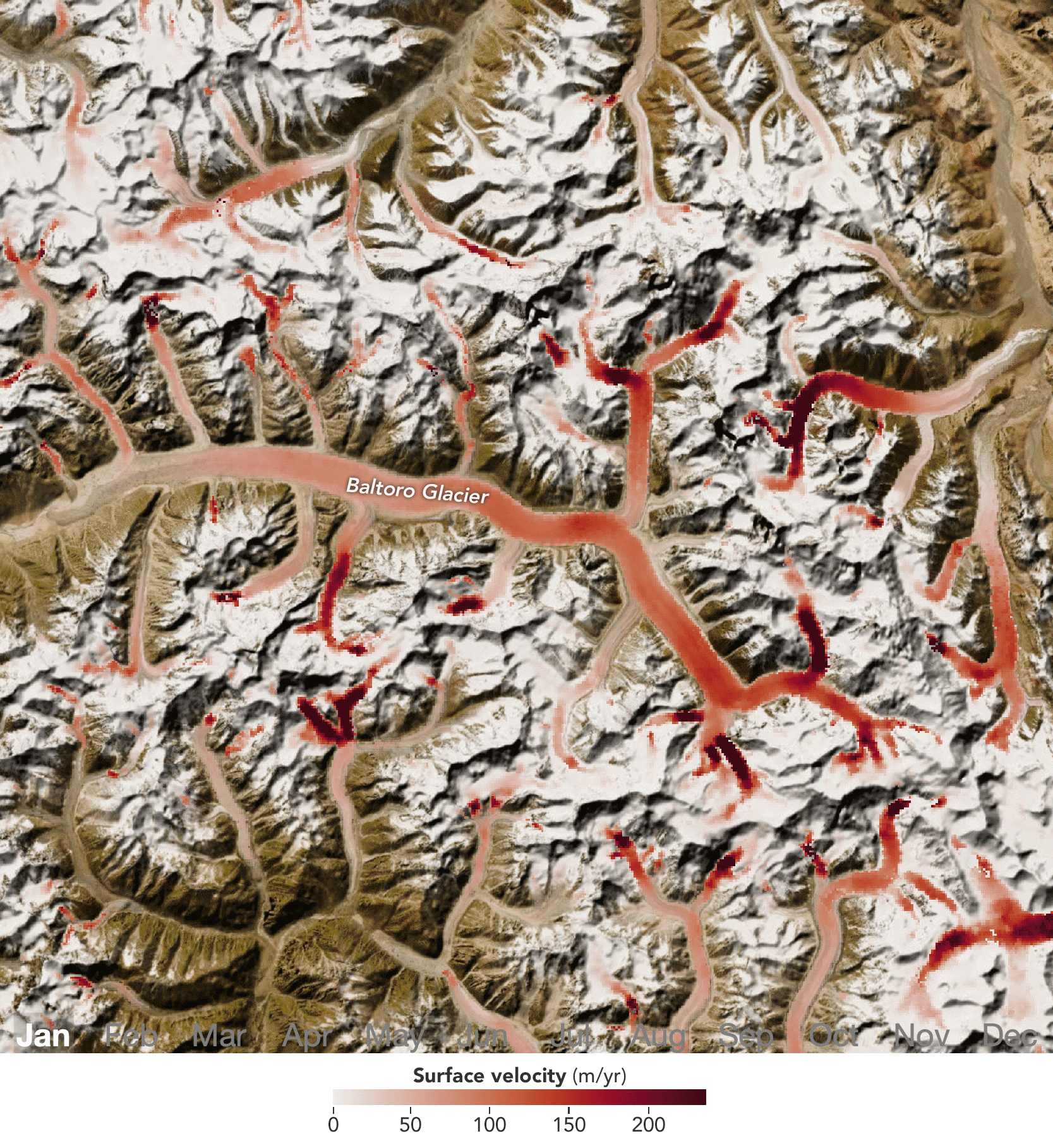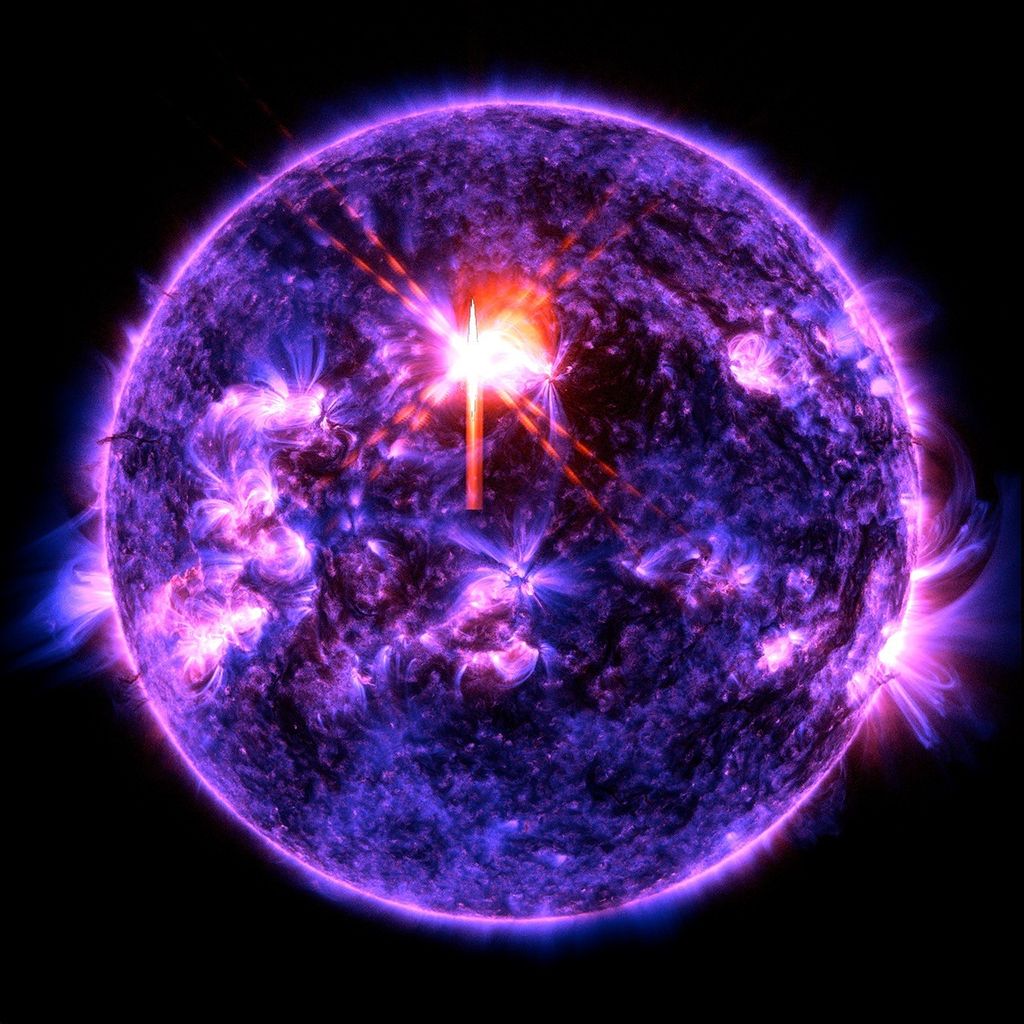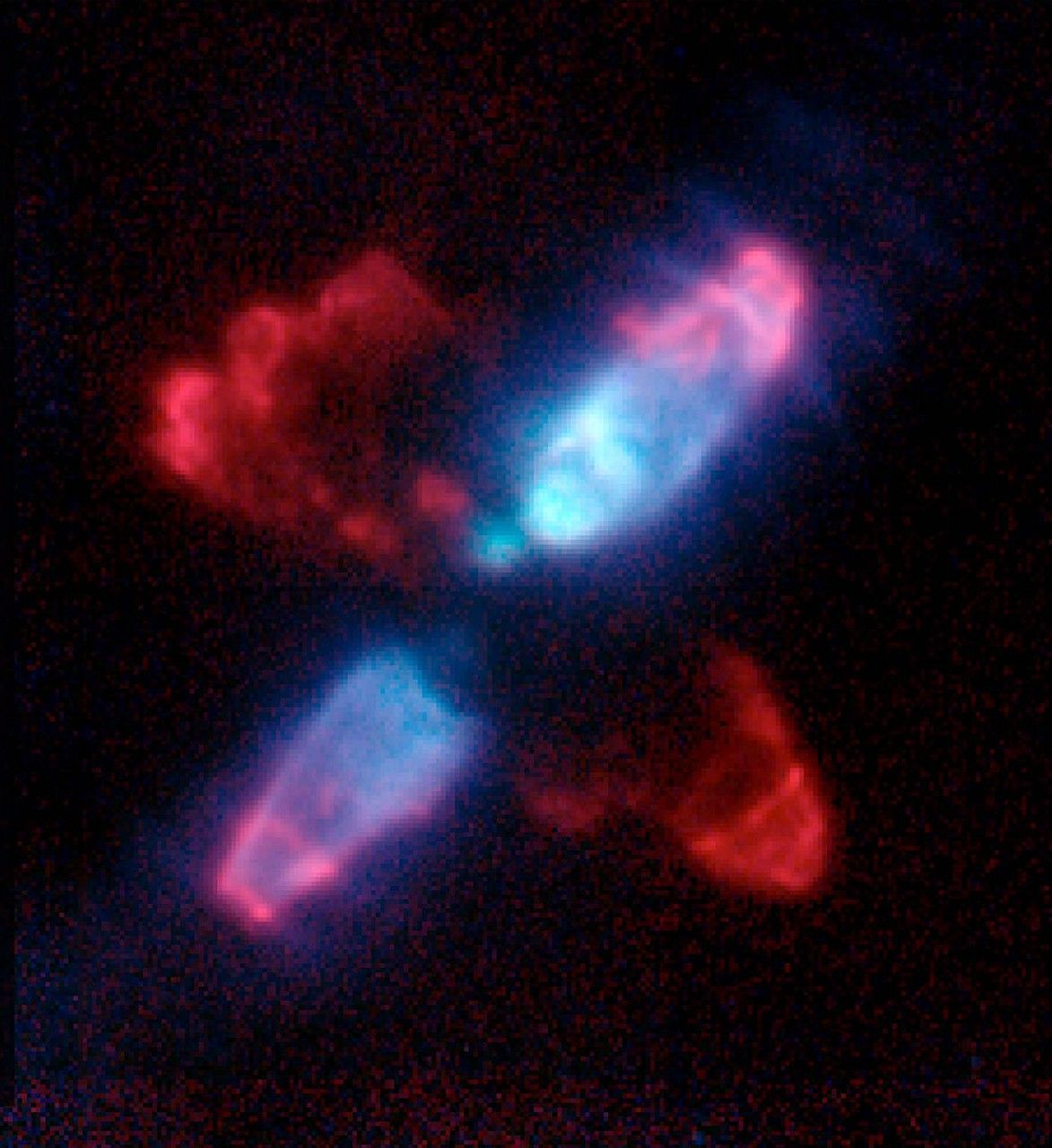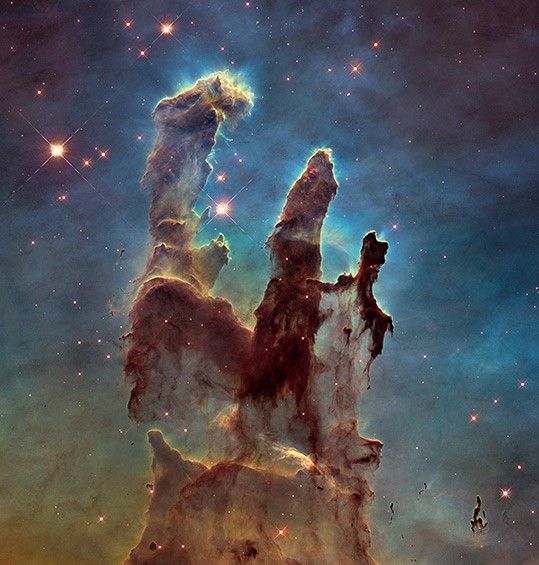1 min read
The Egg Nebula (CRL 2688) in Visible Light (left) and Infrared (right)
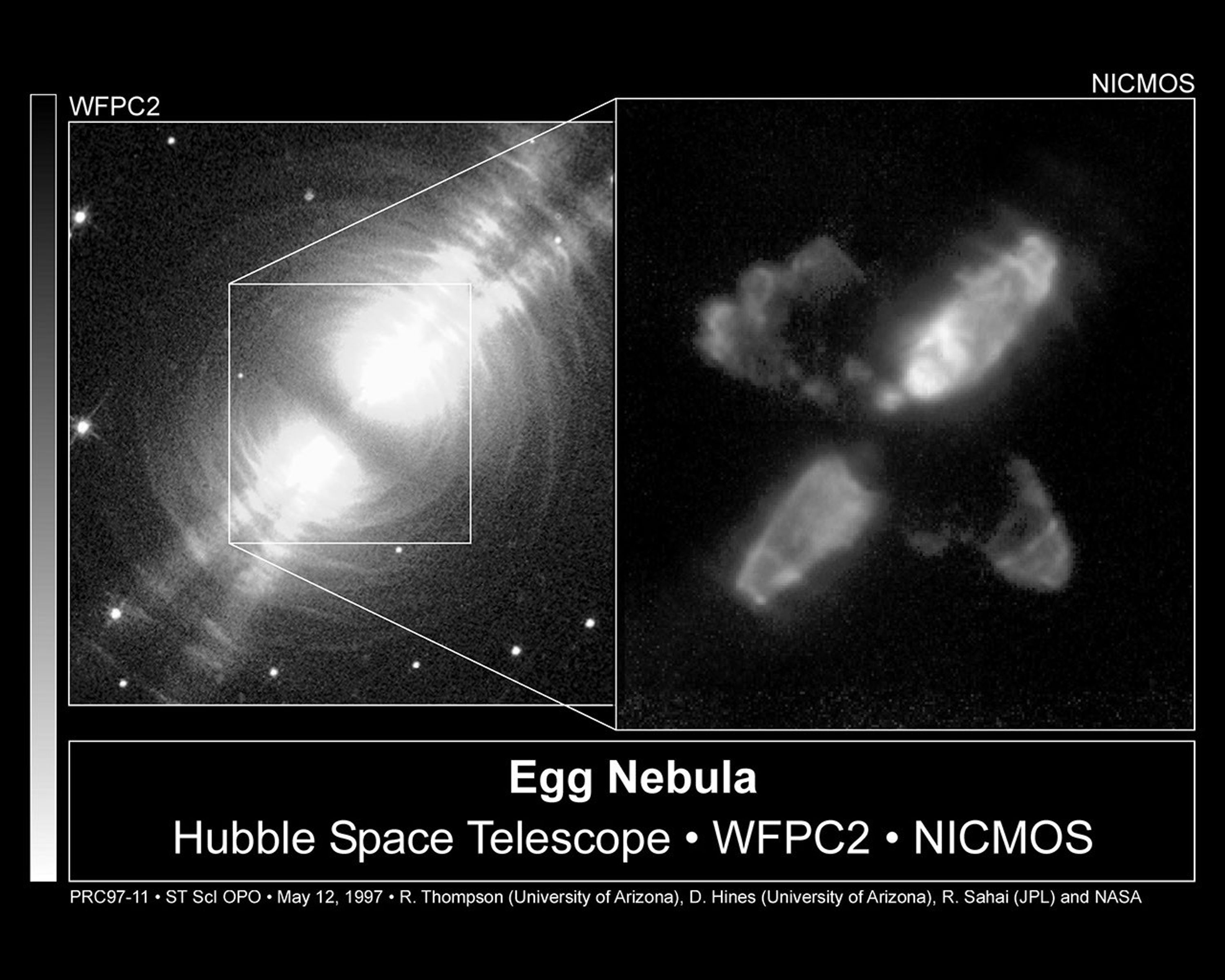
The Egg Nebula, also known as CRL 2688, is shown on the left as it appears in visible light with the Hubble Space Telescope's Wide Field and Planetary Camera 2 (WFPC2) and on the right as it appears in infrared light with Hubble's Near Infrared Camera and Multi-Object Spectrometer (NICMOS). Since infrared light is invisible to humans, the NICMOS image has been assigned colors to distinguish different wavelengths: blue corresponds to starlight reflected by dust particles, and red corresponds to heat radiation emitted by hot molecular hydrogen.
Objects like the Egg Nebula are helping astronomers understand how stars like our Sun expel carbon and nitrogen – elements crucial for life – into space. Studies on the Egg Nebula show that these dying stars eject matter at high speeds along a preferred axis and may even have multiple jet-like outflows. The signature of the collision between this fast-moving material and the slower outflowing shells is the glow of hydrogen molecules captured in the NICMOS image.
The distance between the tip of each jet is approximately 200 times the diameter of our solar system (out to Pluto's orbit).
About the Object
- R.A. PositionR.A. PositionRight ascension – analogous to longitude – is one component of an object's position.21h 2m 18.79s
- Dec. PositionDec. PositionDeclination – analogous to latitude – is one component of an object's position.36° 41' 38.0"
- Object NameObject NameA name or catalog number that astronomers use to identify an astronomical object.Egg Nebula, CRL 2688
- Release DateMay 12, 1997
- Science ReleaseHubble Peers into Heart of Dying Star
- CreditRodger Thompson, Marcia Rieke, Glenn Schneider, Dean Hines (University of Arizona); Raghvendra Sahai (Jet Propulsion Laboratory); NICMOS Instrument Definition Team, and NASA
Share
Details
Claire Andreoli
NASA’s Goddard Space Flight Center
Greenbelt, Maryland
claire.andreoli@nasa.gov










